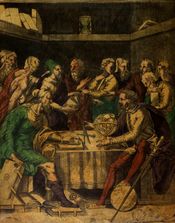|
|
You are not currently logged in. Are you accessing the unsecure (http) portal? Click here to switch to the secure portal. |
Difference between revisions of "Filippo Dardi"
| Line 27: | Line 27: | ||
| genre = | | genre = | ||
| subject = | | subject = | ||
| − | | movement = | + | | movement = |
| notableworks = | | notableworks = | ||
| manuscript(s) = | | manuscript(s) = | ||
| Line 47: | Line 47: | ||
'''Filippo Dardi''' (died 1464)<ref name=Rubboli>[[Marco Rubboli]] and [[Luca Cesari]]. ''[[:File:The_Knightly_Art_of_Combat_of_Filippo_Vadi.pdf|The Knightly Art of Combat of Filippo Vadi]]''. Document circulated online.</ref> was a [[century::15th century]] [[nationality::Italian]] [[fencing master]]. He was an expert not only on fencing, but also astrology, astronomy, geometry, and mathematics.<ref name="Vadi">[[Philippo di Vadi]]. ''Arte Gladiatoria Dimicandi: 15th Century Swordsmanship of Master Filippo Vadi''. Trans. Luca Porzio and Gregory Mele. Union City, CA: [[Chivalry Bookshelf]], 2002.</ref> The son of Bartolomeo (or Dardo) Dardi, he was probably Bolognese by birth (though records exist of a Spanish Lippo Dardi teaching at the University of Bologna between 1444 and 1453).{{cn}} | '''Filippo Dardi''' (died 1464)<ref name=Rubboli>[[Marco Rubboli]] and [[Luca Cesari]]. ''[[:File:The_Knightly_Art_of_Combat_of_Filippo_Vadi.pdf|The Knightly Art of Combat of Filippo Vadi]]''. Document circulated online.</ref> was a [[century::15th century]] [[nationality::Italian]] [[fencing master]]. He was an expert not only on fencing, but also astrology, astronomy, geometry, and mathematics.<ref name="Vadi">[[Philippo di Vadi]]. ''Arte Gladiatoria Dimicandi: 15th Century Swordsmanship of Master Filippo Vadi''. Trans. Luca Porzio and Gregory Mele. Union City, CA: [[Chivalry Bookshelf]], 2002.</ref> The son of Bartolomeo (or Dardo) Dardi, he was probably Bolognese by birth (though records exist of a Spanish Lippo Dardi teaching at the University of Bologna between 1444 and 1453).{{cn}} | ||
| − | In 1412, Dardi was licensed as a fencing master and opened a school in Bologna (in via Pietralata);<ref name="Vadi"/> beginning in 1443, he received an annual stipend of 150 lire from the city in exchange for reducing his fees.<ref>Trevor Dean. "[https://medievalcrimehistory.wordpress.com/2015/06/13/how-much-to-join-a-fighting-class/ How much to join a fighting class?]". ''Medieval Crime History'', 2015.</ref> In 1434, he seems to have written a treatise on fencing and geometry, and was subsequently given a professorship in geometry at the University of Bologna.<ref name=Rubboli/> | + | In 1412, Dardi was licensed as a fencing master and opened a school in Bologna (in via Pietralata);<ref name="Vadi"/> beginning in 1443, he received an annual stipend of 150 lire from the city in exchange for reducing his fees.<ref>Trevor Dean. "[https://medievalcrimehistory.wordpress.com/2015/06/13/how-much-to-join-a-fighting-class/ How much to join a fighting class?]". ''Medieval Crime History'', 2015.</ref> In 1434, he seems to have written a treatise on fencing and geometry, and was subsequently given a professorship in geometry at the University of Bologna.<ref name=Rubboli/> |
| + | |||
| + | Dardi is often credited as the founder of the Bolognese school of swordsmanship, though this can't be demonstrated from available information; he may simply be the earliest fencer from Bologna whose name is well-known. | ||
== Additional Resources == | == Additional Resources == | ||
Latest revision as of 00:54, 7 November 2023
| Filippo di Bartolomeo Dardi | |
|---|---|
| Born | late 1300s |
| Died | 1464 |
| Relative(s) | Bartolomeo Dardi (father) |
| Occupation |
|
| Nationality | Italian |
| Alma mater | University of Bologna |
| Influenced | Guido Antonio di Luca (?) |
Filippo Dardi (died 1464)[1] was a 15th century Italian fencing master. He was an expert not only on fencing, but also astrology, astronomy, geometry, and mathematics.[2] The son of Bartolomeo (or Dardo) Dardi, he was probably Bolognese by birth (though records exist of a Spanish Lippo Dardi teaching at the University of Bologna between 1444 and 1453).[citation needed]
In 1412, Dardi was licensed as a fencing master and opened a school in Bologna (in via Pietralata);[2] beginning in 1443, he received an annual stipend of 150 lire from the city in exchange for reducing his fees.[3] In 1434, he seems to have written a treatise on fencing and geometry, and was subsequently given a professorship in geometry at the University of Bologna.[1]
Dardi is often credited as the founder of the Bolognese school of swordsmanship, though this can't be demonstrated from available information; he may simply be the earliest fencer from Bologna whose name is well-known.
Additional Resources
The following is a list of publications containing scans, transcriptions, and translations relevant to this article, as well as published peer-reviewed research.
- Battistini, Alessandro; Niki Corradetti (2016). "Income and working time of a Fencing Master in Bologna in the 15th and early 16th century." Acta Periodica Duellatorum 4(1): 153-176. doi:10.36950/apd-2016-005.
- Runacres, Rob (2022). "The Bolognese Tradition: Ancient Tradition or Modern Myth?." Acta Periodica Duellatorum 10(1): 1-18. doi:10.36950/apd-2022-002.
References
- ↑ 1.0 1.1 Marco Rubboli and Luca Cesari. The Knightly Art of Combat of Filippo Vadi. Document circulated online.
- ↑ 2.0 2.1 Philippo di Vadi. Arte Gladiatoria Dimicandi: 15th Century Swordsmanship of Master Filippo Vadi. Trans. Luca Porzio and Gregory Mele. Union City, CA: Chivalry Bookshelf, 2002.
- ↑ Trevor Dean. "How much to join a fighting class?". Medieval Crime History, 2015.

